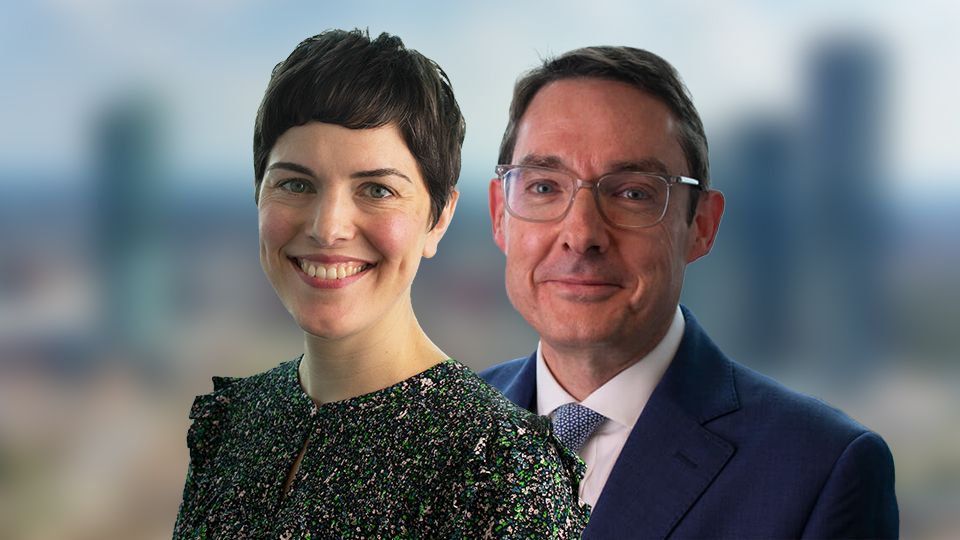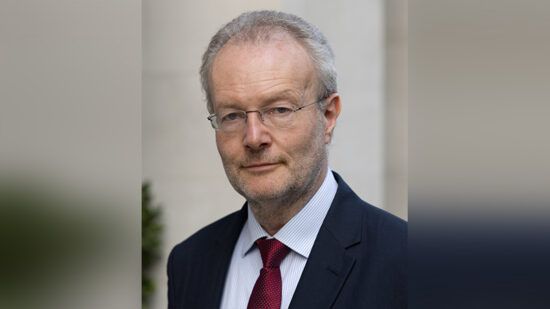Castlefield’s John Eckersley, founder and senior partner, and Ita McMahon, partner in the investment management team, discuss the charitable roots of the business, long-term sustainable growth plans and their approach to engagement as a smaller firm.
How is sustainability embedded into your business?
JE: I founded the business in 2002 after formally being a director and CIO at Brown Shipley in Manchester. I had an itch I needed to scratch in setting up my own business and so we launched with the backing of charitable foundations, which are still shareholders today.
This was 20 years ago and there was an emerging focus on what was ethical investment in the charity sector. We launched the business with a client-base focused on ethical investing, but now I would say we are a responsible investor.
Our differentiator from the mainstream is that many say they invest with ESG in mind – we take that to mean as an input, but we consider it as an output, which is really what the Financial Conduct Authority (FCA) is doing under the new Sustainability Disclosure Requirements (SDR) proposals.
We look at sustainability in two ways; through our business model and from an investment perspective.
If you go back to basics and start with why we exist it is to help clients, investors and the people that work here to achieve their personal goals.
We do that in a way that protects the interest of a broad range of stakeholders – within that you cannot ignore sustainability and one of our core values is long-term sustainable growth.
In order to do that we are simply gate herding assets to do good – that sounds a bit twee but the more assets we get, the more we can invest in companies that are improving their behaviour.
Did you respond to the FCA’s SDR consultation? What are your thoughts on the fund labels and disclosure requirements?
IM: We put in a full response to the FCA consultation with views from our financial advisers, our investment teams and others across the business.
We like the idea of having to disclose unexpected holdings – fund managers will have to say clearly which sectors they hold investments in that may be unexpected. The idea behind it is clients won’t want to see oil and gas being held in something labelled as ‘sustainable’. We think that is good practice anyway.
See also: – Will disclosing ‘unexpected’ holdings lead to greater transparency?
Recently, there has been an increasing risk of greenwashing and clamping down on the use of the words ‘sustainable’ and ‘impact’ will really help clients.
We are hoping our range of funds will sit in the ‘sustainable focus’ category, but we are waiting on whether having set of themes will fit that label or if someone externally will tell us what those themes need to be.
Tell us about your approach to engagement.
IM: On the Castlefield Sustainable UK Smaller Companies Fund we are often one of the first investors to talk to companies about ESG issues. We have raised topics with senior people and they have really taken it on board.
A few years ago, we spoke to a company involved in erasing data from laptops, and highlighted they are really well positioned as a sustainable stock. We carried out a separate briefing session with the CFO showing them how to measure their carbon footprint and report on ESG. Now they produce an annual sustainability report.
Every year we talk to stakeholders on how to improve that – we are part of their feedback loop.
When you talk about sustainability on a regular basis, they will remember that and come back to pick your brains. This shows how we, as a smaller investor, can have an influence.
We also team up with groups like ShareAction and had some success last year at Unilever as part of a collation of investors through the Healthy Markets initiative; we asked Unilever to take on board recommendations about the nutritional profile of its products. After negotiations, we were happy with their plans and were happy to drop that resolution.
Do you think interest in ESG investing is on the wane?
JE: Groups are definitely becoming more cautious about the claims they are making after a number have been fined by the Securities Exchange Commission. They are downgrading what they say so there is not a mis-selling scandal in the future.
But in terms of the end investor, it is becoming more popular and we think we are still at the foothills of what we will end up with.
One of the challenges has been the scenario we had in Q1 2022 when oil and gas stocks went through the roof – investors could ask why the stock market has gone up when their portfolios have not. Our investors do understand that and are not ones to want to benefit financially from other people’s misery, they would be uncomfortable with it.
We also think the next generation of investors are very keen on investing sustainably over time.
How do you think ESG investing can help weather a recession/more challenging markets?
JE: The approach lends itself pretty well to identifying businesses that are financially resilient.
We are targeting business with higher margins and faster growth, and we do a lot of valuation work.
In our smaller companies fund a stock that we have been monitoring for some time, but have only just started investing in, is TREATT which makes flavourings for food. We really liked the business, but it had been too expensive. There was a setback and we got in touch with the management to understand why that happened, which we did, and we felt ready to invest in that more attractive entry point.
What are your plans for the business?
JE: We always want to grow the funds under management. We are not massively profitable, which may be an odd thing for me to brag about, but it’s because we put a lot of fixed costs in from what we do. We are comfortable with that; we are not externally owned and have no plans to sell off.
We are also looking to put a toe in the third party advised market, letting them know about the funds we have with track records – we have been running MPS on platforms for 10 years, but we have only just started to talk about it.
Overall, we are in a good place in terms of the types of people we have and the professionalism of the team. If there are people out there who would like to join a business with a sustainable focus, we are here.








